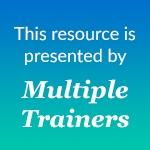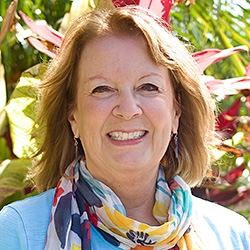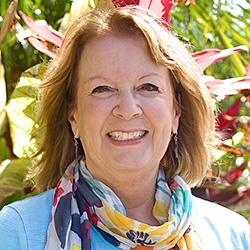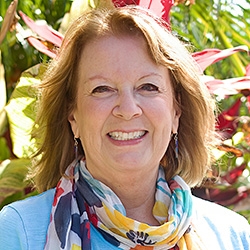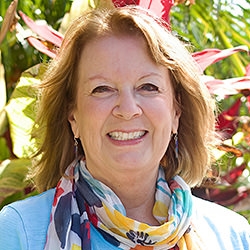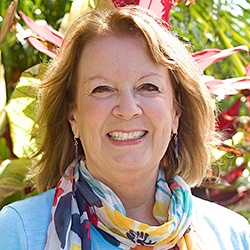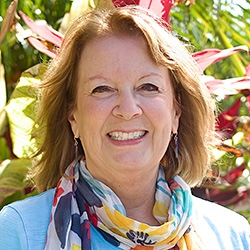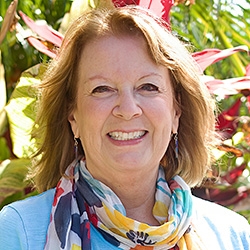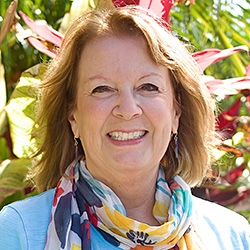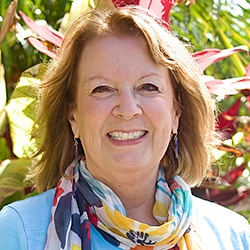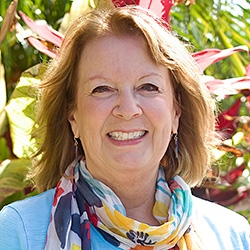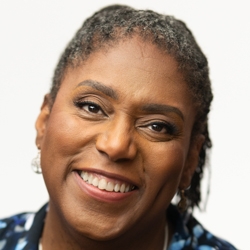
Search Results: understanding
-
If you’d like to bring more joy and fun into your workplace, listen to this trainer dialogue for NVC tips and tools from some of the leading experts in the industry.
-
Trainer Tip: Clarifying our requests can make the difference between frustration and satisfaction, Mary shows you how.
-
Trainer Tip: We can improve our relationships by focusing our attention first on connection instead of other stragegies.
-
Trainer Tip: Sometimes the best way to get our need me is to first connect with the needs of another.
-
Join Linda Mia Mukte (formerly Rysenbry), CNVC Certified Trainer, for this uniquely powerful telecourse recording that blends NVC with Dr. Sue Johnson’s empirically validated work on adult love relationships called EFCT: Emotionally Focused Couples Therapy.
-
October always makes me think about Marshall Rosenberg, the founder of Nonviolent Communication. He was born October 6, 1934. If he were still alive today (he died February 7, 2015), he would be 89 years old!
-
Do you ever think you have the perfect answer for someone who is struggling? Eric offers a tip on how to approach situations like this.
-
Eric Bowers explains how needs and strategies correlate to different brain hemispheres, and how relaxing into our needs opens us to greater possibilities.
-
When we take a leap in life and put our hearts out into the world in new or bigger ways—sharing a song, dance, or poem, writing a book, competing at a sporting event, giving a speech, and so on—there is greater potential for aliveness but also for shame and pain
-
Want to increase diversity, plus improve group dynamics and group functioning? There are things you can do to make NVC settings more welcoming to people of color. Learn more about how to use NVC; attend to impact; help the community understand and demonstrate more awareness; factor in historical context; engage; create a more inclusive climate; and more!
-
Trainer Tip: Only after we connect to our unmet need can we make sound decisions that will transform our experience. For example, if you feel bored, connect to your unmet needs (eg. need for understanding the relevance, etc) and then look for strategies that will meet them (eg. ask the speaker how this topic relates to our lives).
-
CNVC Certified Trainer Lore Baur asks: "Have you ever seen something happen that made you feel uncomfortable and you didn't know what to do?" That's the "bystander effect:" a well-researched and commonly experienced phenomenon. Training can help you overcome it, enabling you to discern what to do and how to support others in ways that reduce trauma and increase safety.
-
Trainer Tip: Sometimes we need to empathize with a person before he can hear our anger. Consider that all anger is an expression of an unmet need. If we focus on the need, rather than the actions, we are more likely to connect compassionately with other people. Be aware of opportunities to empathize with someone’s anger today.
-
Join Eric, as he reveals a clear path from heartbreaking intimate relationships to joyful, thriving intimate relationships. Eric uses his passion for helping singles heal from their past relationships, to help you to experience more ease, joy and mutuality in future relationships.
-
Trainer tip: When we focus on needs further possibilities are more likely to open up. When we focus on a particular strategy, our world can feel scarce and conflicts can arise. Resolution comes when we value everyone’s needs and seek mutually satisfying solutions. We can ask for support towards this outcome.
-
Trainer tip: In every interaction, we have a choice of responding in one of these four ways: judge/blame self, Judge/blame others, empathize with self, and/or empathize with others. The goal is to make a conscious choice about our response. Notice the choices you have when you receive someone’s communication today.
-
For many people, attempting to connect with others across differences can feel akin to walking through a minefield. With humility, tenderness, and courage, Roxy challenges your perspectives and encourages you to open your heart and mind. Roxy uses concrete examples and visual tools to illustrate complex concepts.
-
There are endless ways to meet our needs. Conflict occurs when we argue over strategies. When we actively value everyone’s needs, we foster openness and deeper connection in our relationships. Today look for opportunities to focus on needs in order to resolve an issue with at least one person.
-
We can ask for what we want but if we repeatedly don’t get it from one source, it's our responsibility to find a new way to get it. We don’t honor our relationships when we insist that people who are unavailable or unwilling to support us meet our needs. Read on for related a parable about a woman persistently asking to get milk from a hardware store.
-
For many people, attempting to connect with others across differences can feel akin to walking through a minefield. In this course recording Roxy explores a variety of concepts and practices that can help you navigate situations that might be confusing, challenging, or even shocking. And she'll be delving into key differentiations, such as equity and equality. This recording will offer a renewed sense of clarity around a number of theories that may help explain specifically why the areas of power, advantage, and rank tend to be so difficult to work with.

